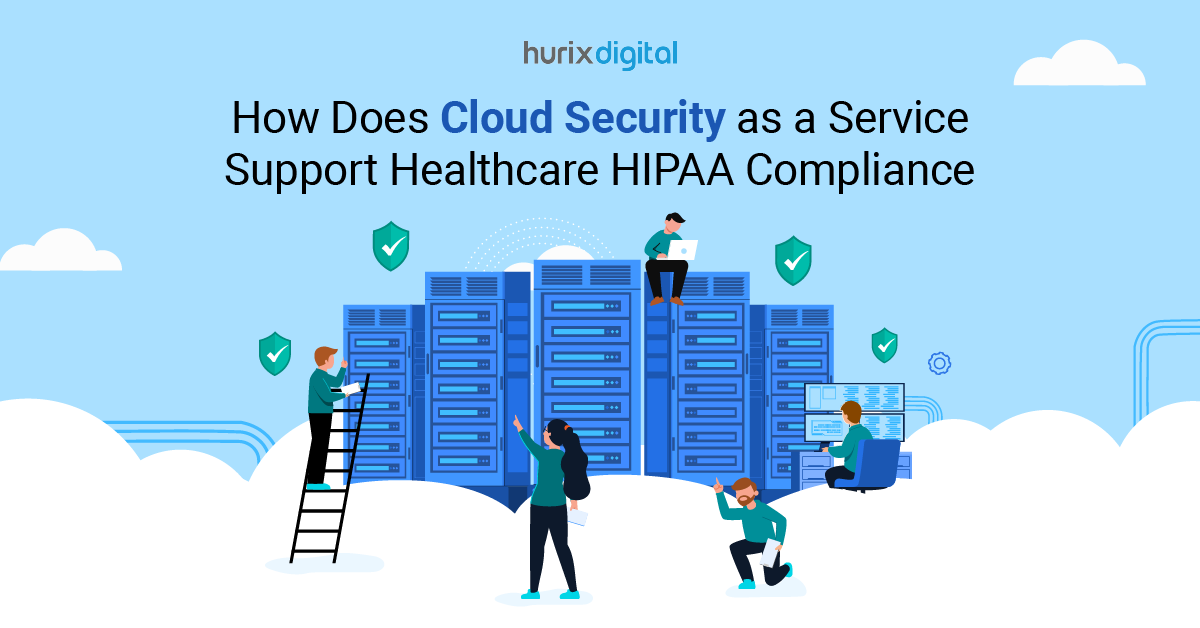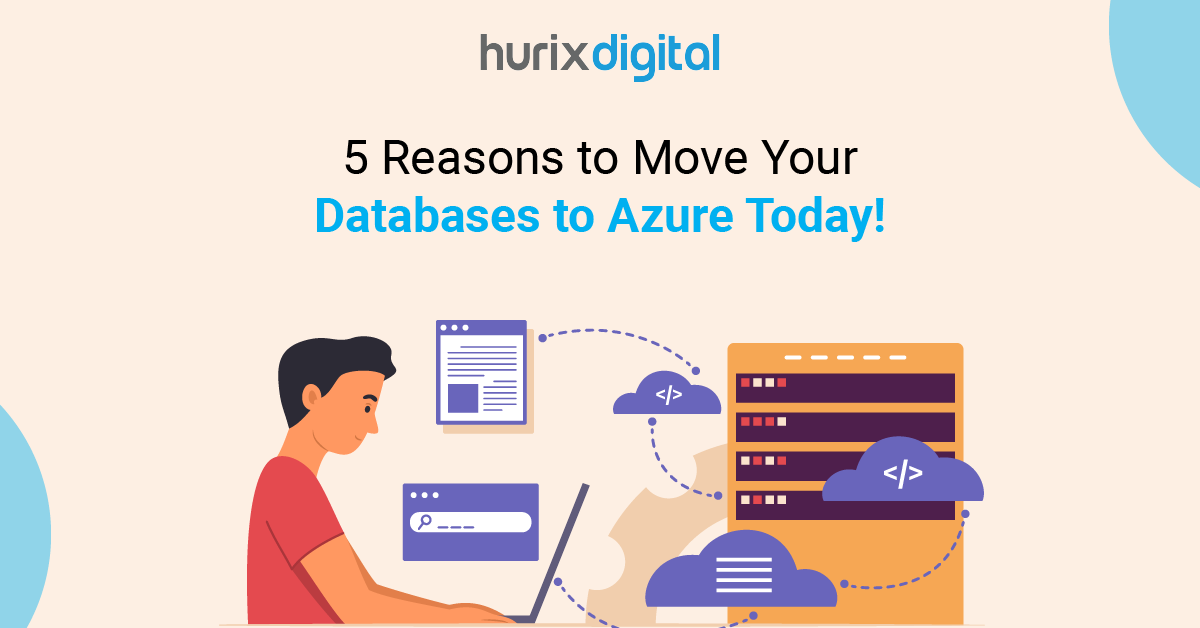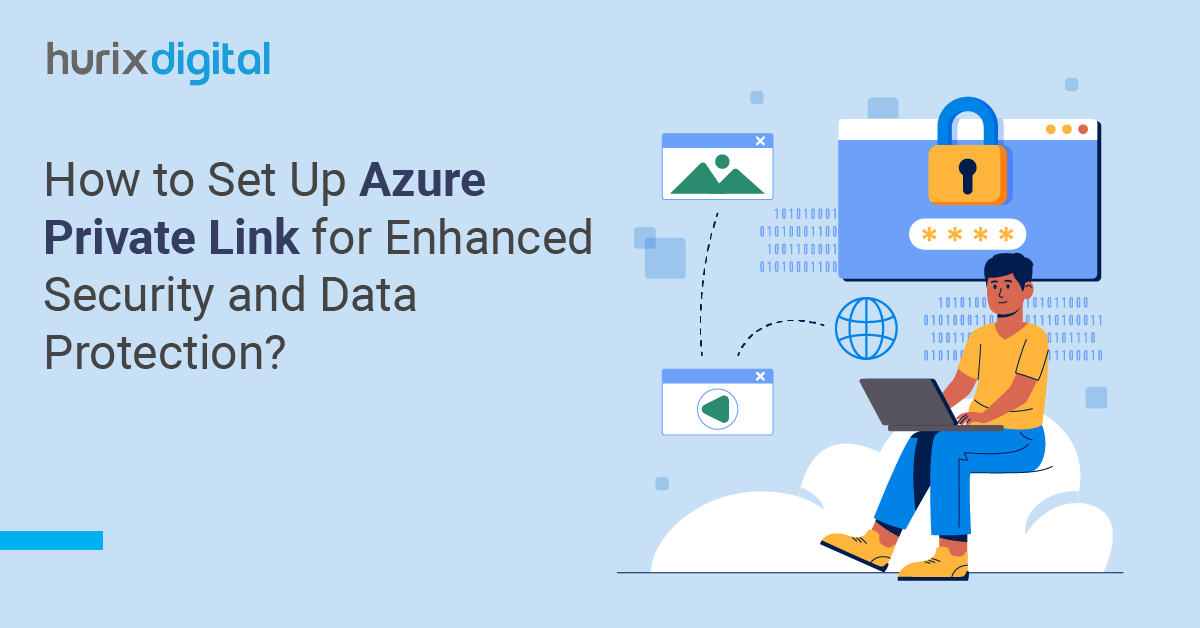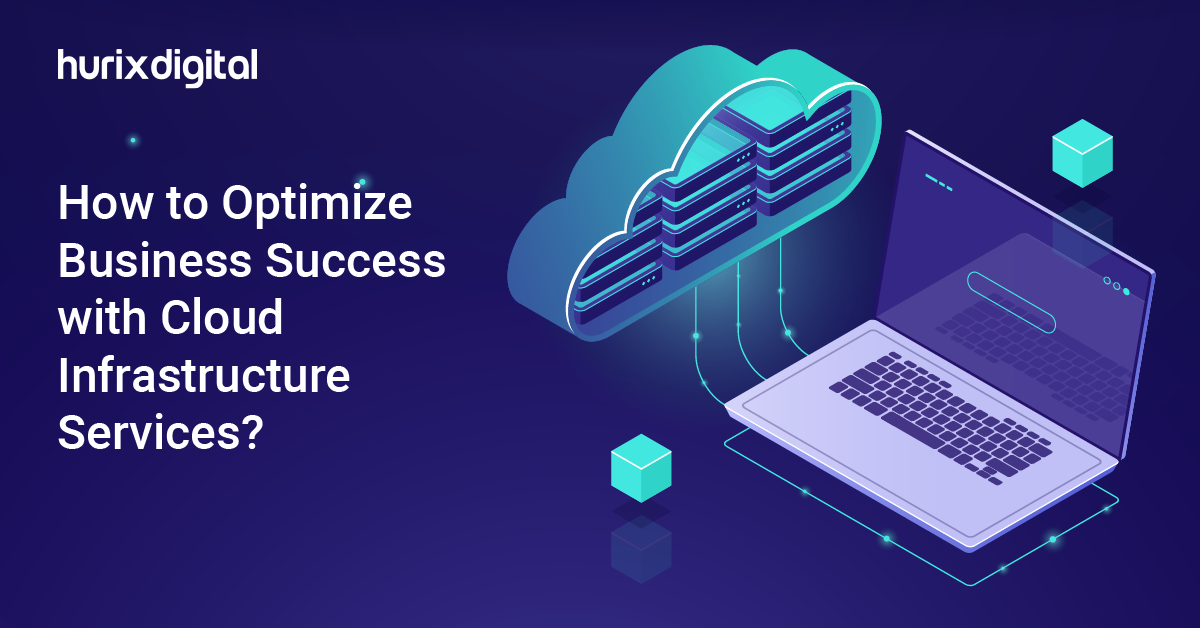
How Does Cloud Security as a Service Support Healthcare HIPAA Compliance?
Summary
This blog examines cloud security’s role in HIPAA compliance, highlighting key rules, the importance of compliance, and strategies for data protection and risk management with cloud providers.
HIPAA compliance in a cloud environment is essential for organizations dealing with protected health information. As depicted by a Gartner report, more than 95% of organizations will transfer critical workloads to the cloud by 2025.
The objective is to enhance efficiency and data security. However, such leverage leaves them vulnerable to threats from unauthorized access and cyber-attacks.
Healthcare organizations must follow strict HIPAA rules and comply with the cloud by following the necessary Privacy, Security, and Breach Notification Rules. Failure to do so could result in penalties of up to $1.5 million per year.
Table of Contents:
- About Cloud Security as a Service
- What are the HIPAA Rules in Cloud Computing?
- Why HIPAA Compliance Matters?
- How to Maintain HIPAA Compliance When Using Cloud Providers
- Conclusion
About Cloud Security as a Service
According to a report, more than 81% of healthcare data breaches take place through cloud vulnerabilities.
This comes from misconfigurations and inadequate security measures. The use of managed services and compliance with cloud security best practices can help mitigate this issue. Organizations need to consider:
- Implementing cloud security best practices to meet HIPAA guidelines
- Using cloud-managed services for secure infrastructure
- Using Cloud Security as a Service for real-time compliance monitoring.
By understanding these strategies, healthcare organizations can protect patient data while being compliant when using the cloud.
What are the HIPAA Rules in Cloud Computing?
Healthcare providers who use cloud services must follow these rules:
1. HIPAA Privacy Rule
The Privacy Rule specifies requirements for Protected Health Information (PHI). Covered entities must have policies in place that limit access and disclosure of sensitive content. Cloud vendors must execute a Business Associate Agreement to define their obligation to maintain HIPAA compliance.
2. HIPAA Security Rule
The Security Rule has three components:
- Administrative Safeguards: Develop policies for risk management, train employees, and control access.
- Physical Safeguards: Use protected data centers with limited physical access.
- Technical Safeguards: Implement encryption, user authentication, and real-time monitoring devices to protect PHI.
3. HIPAA Breach Notification Rule
In case of a breach, notify the affected persons, appropriate authorities, and media outlets. This is necessary if the breach affects more than 500 people. Incorporate cloud infrastructure security to discover breaches and report them on time.
4. Business Associate Agreements or BAAs
Any cloud provider dealing with PHI has to sign a BAA promising to comply with HIPAA.
Why HIPAA Compliance Matters?
Today, being HIPAA compliant is a legal and ethical mandate. Here’s why it is important for healthcare providers and organizations:
1. Protecting Patient Data and Privacy
HIPAA compliance ensures the safety of PHI. Cloud infrastructure security allows healthcare organizations to protect sensitive data, from medical records to billing information.
2. Risk Analysis and Management
HIPAA demands regular assessments of risks and weaknesses. Organizations must adopt cloud data security best practices to reduce risks using encryption and secure backups.
3. Avoiding Penalties
Non-compliance with HIPAA can result in penalties ranging from $125 to $2.5 million every year per occurrence. Appropriate cloud compliance reduces the risk of financial and legal consequences.
4. Protection Against Cybersecurity Threats
In 2023 alone, more than 700 healthcare data breaches occurred, compromising millions of patient records. Cloud security solutions protect against attacks from phishing and malware.
5. Business Continuity
HIPAA demands that the organization provide data availability in case of disruption. Cloud-compliant managed services offer disaster recovery plans. Thus, the healthcare provider is always able to operate uninterruptedly during emergencies.
6. Enhancing Organizational Reputation
Organizations that prioritize cloud security standards reduce their risk of lawsuits and build stronger patient relationships and trust.
7. Facilitating Safe Collaboration
HIPAA-compliant cloud platforms allow the secure sharing of data. This enables the free flow of collaboration without sacrificing security.
How to Maintain HIPAA Compliance When Using Cloud Providers
As healthcare organizations go about digital transformation, using cloud services to store and manage Protected Health Information has become a necessity. Partner with a provider that offers HIPAA-compliant cloud solutions. Here is the best way to stay compliant
1. Select a HIPAA Compliant Cloud Provider
An eligible provider should have the proper security measures in place and promise to secure PHI by signing a BAA.
Ensure the cloud provider has experience managing cloud compliance for healthcare organizations. Make sure to review their ISO 27001, which validates their security.
Infrastructure security is handled by providers, while application-level access must be secured by the client.
2. Follow Cloud Data Security Best Practices
Ensure the protection of PHI in the cloud by implementing best-practice cloud data security solutions as given in the Privacy and Security Rules of HIPAA. This includes:
- Data Encryption
- Access Controls
- Audit Logs and Monitoring
- Secure Backups and Disaster Recovery
3. Conduct HIPAA Risk Assessments
Regular assessments ensure that your cloud infrastructure security remains compliant. It is important to:
- Assess risks in storing and transferring PHI in the cloud.
- Identify third-party access, software vulnerabilities, and data misconfigurations.
- Once risks are isolated, work with your cloud provider using advanced Cloud Security as a Service tool to address gaps.
- Implement cloud-managed services to monitor and report risks or breaches in real time.
4. Train Your Workforce on Cloud Compliance
Proper and extensive training ensures your staff knows the importance of cloud compliance and their part in protecting data. Here are some cloud data security best practices:
- Educate staff on properly managing, sharing, and accessing PHI within the cloud environment.
- Train employees to have strong passwords, turn on MFA, and recognize phishing or hacking.
- Ensure procedures are in place for reporting security incidents or suspected breaches to prevent HIPAA violations.
- Conduct training sessions regularly to update employees on changing cloud security standards and HIPAA policies.
5. Partner with Cloud Managed Services Provider
Managing HIPAA can be resource-intensive. For this reason, partnering with MSPs simplifies compliance with security and risk management. MSPs offer expert specialized support for HIPAA implementation, including best practices for cloud data security.
6. Monitor Third-Party Tools and Integrations
Integrate third-party tools into the cloud environment. This can create a risk if those tools don’t comply. To continue with HIPAA compliance:
- When using third-party software or services, the provider must fulfill cloud compliance standards and, more importantly, sign a BAA.
- Expose PHI to only necessary third-party tools.
- Have Regular Security Audits for third-party integrations based on vulnerabilities or non-compliance.
Also Read: Top 10 Cloud Management Tools for Your Business
Conclusion
The cloud offers opportunities and challenges for healthcare organizations seeking to become HIPAA compliant. Cloud security solutions ensure the protection of PHI. Organizations should implement cloud security best practices, use managed services, and protect sensitive patient data against threats.
Contact experts at Hurix Digital, who are focused on offering customized cloud security as a service and compliance-driven solutions for the healthcare industry. The team can help you implement the appropriate security measures to meet HIPAA requirements.
Connect with our experts and ensure your journey to a HIPAA-compliant cloud environment.

Vice President and Strategic Business Unit Head – Cloud Services
A top technology management voice on LinkedIn with 20 Years of experience in Information Technology, Cloud Services, Digital Transformation, Application Modernisation, Managed Services, IT Security Engineering and Operations Management. An avid technology Leader, Leadership Speaker, Author & Coach.







